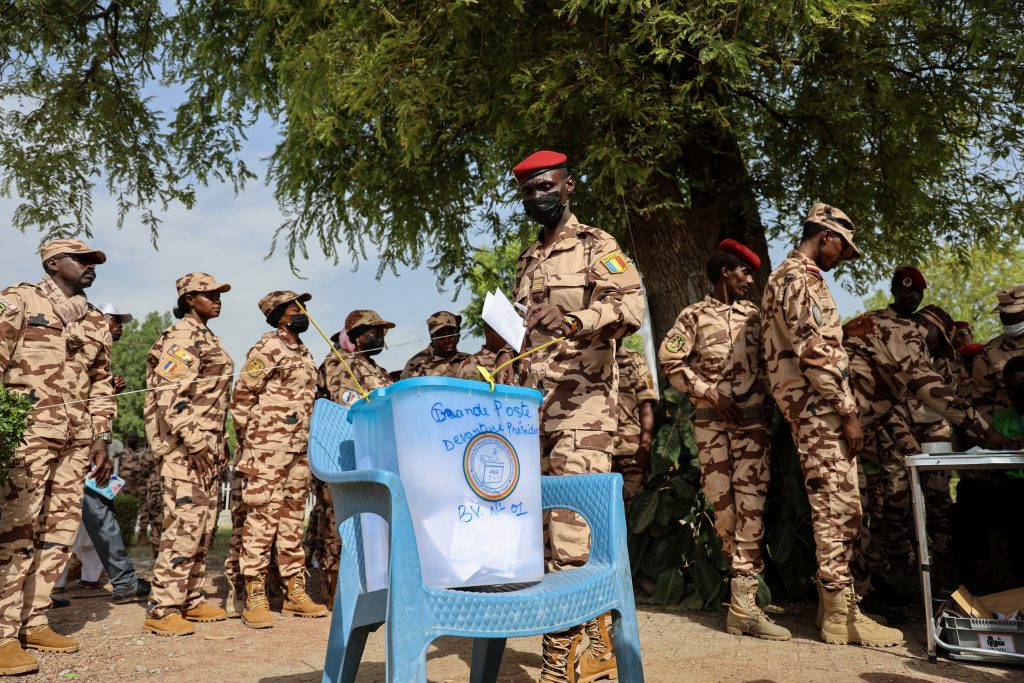Chad’s historic presidential vote: Transitioning from junta rule to democracy

Chad is on the verge of transitioning to democratic rule with an upcoming presidential vote, marking a significant shift from its junta-led state.
This move follows a three-year transition period initiated after the sudden death of long-time leader Idriss Deby Itno during rebel clashes.
General Mahamat Déby, Deby’s son and successor, is among the frontrunners in the election, raising doubts about the potential for genuine change.
Prime Minister Succès Masra, viewed as his main competitor, is among the nine challengers.
However, there are concerns about the exclusion of certain candidates by the constitutional council due to alleged irregularities, including forgery accusations against Nassour Ibrahim Neguy Koursami.
Critics argue that these exclusions were politically motivated. Furthermore, Yaya Dillo, another potential opponent, was killed by security forces in February, complicating the electoral landscape.
Despite calls for a boycott from activists who perceive the election as a move to legitimize the Deby dynasty, Chad’s election holds significance for other junta-led states in West and Central Africa, which have experienced military rule since 2020.
It might serve as a model for juntas aiming to maintain political control after seizing power.
Chad, with nearly 18 million people, has not experienced a peaceful transfer of power since gaining independence from France in 1960. Idriss Déby’s thirty-year rule, following his overthrow of Hissène Habré in 1990, ended with his death in 2021.
His son, now 40, succeeded him, initially committing to an interim leadership period and pledging not to run for president. However, questions linger about the potential for a dynasty.

Gen Déby has sought to dispel dynasty concerns, emphasizing adherence to term limits.
Mr. Masra, also 40, appointed as prime minister by Gen Déby, denies allegations of betrayal and secret power-sharing agreements.
He appeals to Chadians to vote for him to end decades of stagnation and darkness.
Chadians express a mix of hope and despair as they approach the vote. While there is optimism for a new era of leadership, many have experienced worsening conditions over the past thirty years.
The election results, expected by May 21, may lead to a second round in June if no candidate secures over 50% of the vote.
Source-BBC





![Photo of You cannot blame UG VC for receiving fake award [Article]](https://beachfmonline.com/wp-content/uploads/2020/09/20200904_201418-390x220.png)